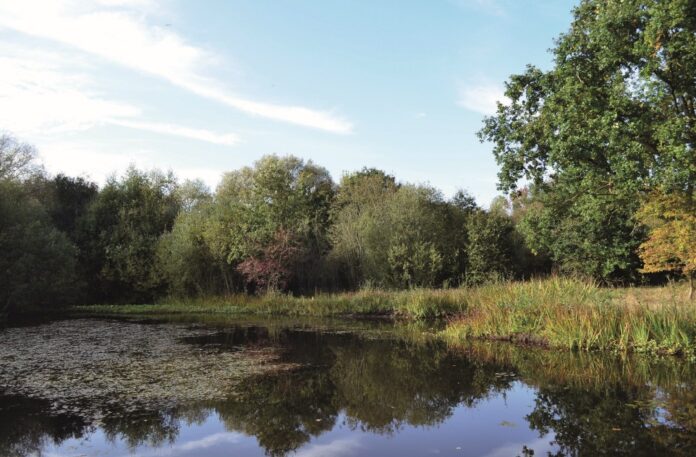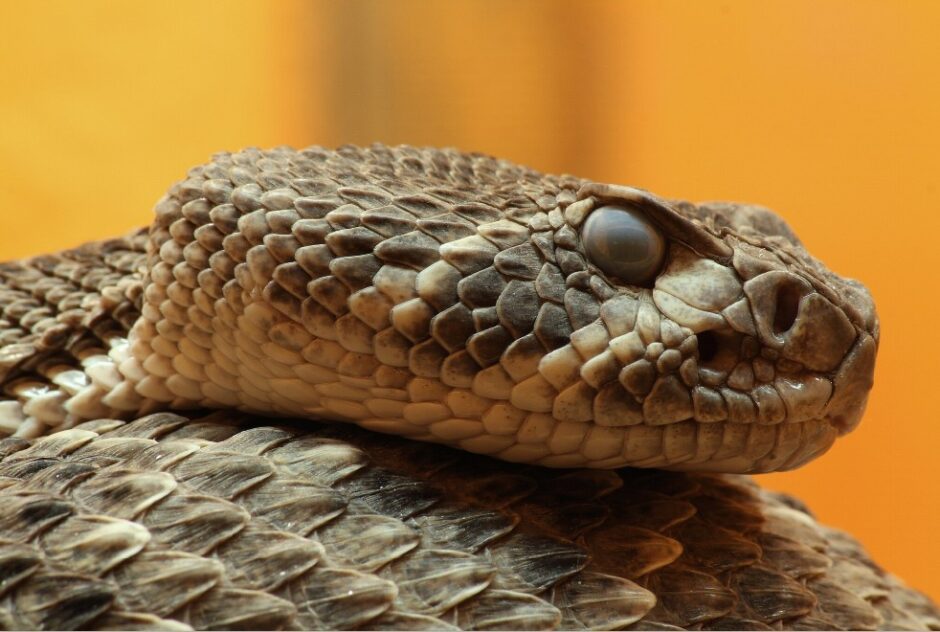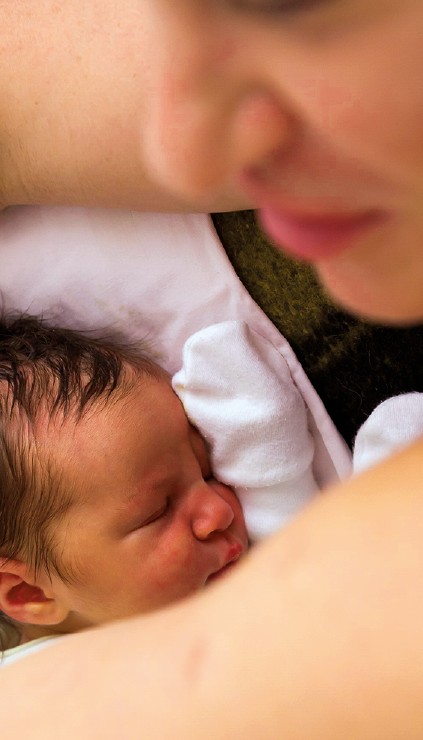The man called his wife’s name Eve, because she was the mother of all living (Genesis 3:20).
The first chapters of the Bible describe the creation of the universe, including the first man, Adam. ‘The Lord God formed the man of dust from the ground and breathed into his nostrils the breath of life, and the man became a living creature’ (Genesis 2:7). God made his wife from one of Adam’s ribs. ‘Then the man said, “This at last is bone of my bones and flesh of my flesh; she shall be called Woman, because she was taken out of Man’ (v. 23).
They lived together in the idyllic garden of Eden, in joyous fellowship with God. (The word translated ‘God’ in our Bibles is Elohim, which is a plural Hebrew word, and no doubt refers to God’s angels.) How long they lived like this we don’t know, but it was presumably long enough for them to be taught God’s ways.
The Serpent’s Lie
Their blissful life was rudely interrupted by the intervention of the serpent.
Now the serpent was more crafty than any other beast of the field that the Lord God had made. He said to the woman, “Did God actually say, ‘You shall not eat of any tree in the garden’?” And the woman said to the serpent, “We may eat of the fruit of the trees in the garden, but God said, ‘You shall not eat of the fruit of the tree that is in the midst of the garden, neither shall you touch it, lest you die.’” But the serpent said to the woman, “You will not surely die. For God knows that when you eat of it your eyes will be opened, and you will be like God, knowing good and evil” (3:1–5).
This was a lie. Suddenly, temptation was introduced into the godly atmosphere of the garden. Our first parents succumbed and ate the forbidden fruit, and sin followed temptation. They now had a different awareness of their surroundings. They realised they were naked, and they were ashamed. They made futile attempts to cover themselves with fig leaves and then hid amongst the foliage of the garden. But they could not hide from God.
Judgement
The reality of their new situation was explained, to the man and woman and to the serpent. They heard the curses and explicit punishments that were to be imposed on them, as well as the earth itself, because of their disobedience. But amongst all that sorrow and hurt was the promise of redemption. God showed them the way the tragedy was to be overcome. He said to the serpent, ‘I will put enmity between you and the woman, and between your offspring and her offspring; he shall bruise your head, and you shall bruise his heel’ (v. 15).
The serpent’s offspring represents everything in the world that is against God. But there would be an offspring of the woman, who would deal the serpent’s offspring a fatal blow, and undo the catastrophe which the serpent had created.
The force of the divine pronouncement that they would surely die, was reinforced when God told them, ‘You are dust, and to dust you shall return’ (v. 19).
Their miserable situation was compounded by their imminent expulsion from the garden. Their enjoyment of the peaceful life in the beauty of the garden had ended abruptly, with their foolish yielding to the serpent’s lie and the immediate imposition of the punishment about which they had been warned. It is at this point that Adam called his wife’s name Eve. The account gives the explanation: ‘because she was the mother of all living’ (v. 20).
In place of the fig leaves they had sewed together, which would fade and perish in time and need frequently renewing, God made garments of skins for their clothing (v. 21). This necessitated the death of an animal, which would have been truly shocking for Adam and Eve. Their covering and protection was only possible because another creature had suffered and made the ultimate sacrifice.
God knew that the newly acquired knowledge and experiences of Adam and Eve would have serious repercussions, both for themselves and ultimately for God’s purpose. Consequently, they were driven out of the garden for the sake of their learning and instruction, as well as for the preservation of the way of the tree of life (v. 24).
If you read God’s sentence on the man and woman in verses 16–19 you’ll notice how the roles of husband and wife were defined. The woman was to be the child bearer and homemaker, and the husband was to work and provide for the family.
The Woman’s Name
Why did Adam call Eve ‘the mother of all living’, when at that point there were no children? Eve had rebelled against the commandment of God, been judged and found wanting, and sentenced to return to the dust. In this difficult moment she could have been better described as ‘the mother of all dying’. Their sin had involved the whole of humanity in the problem of sin and death: ‘Sin came into the world through one man, and death through sin, and so death spread to all men because all sinned’ (Romans 5:12).
So why did Adam make this remarkable statement? He was quite right. He had not made a mistake, but what did he mean? Where did this information come from? Was it an instinct because he loved Eve? Or was it a flash of inspiration? No—it was evidently because of what God had said.
Remember God’s condemnation of the serpent: ‘‘I will put enmity between you and the woman, and between your offspring and her offspring; he shall bruise your head, and you shall bruise his heel’ (v. 15). (That word ‘offspring’ literally means “seed”.)
Adam and Eve did not know when the promise of the “seed” would be accomplished. They had heard God’s declaration, but the timing of its fulfilment was not mentioned or even hinted at. All they knew was that it would be some time in the future. But how far into the future? They had no children at this stage, but there is a hint that they expected their first-born son would satisfy the promise: ‘Now Adam knew Eve his wife, and she conceived and bore Cain, saying, “I have gotten a man with the help of the Lord”’ (4:1). Then after Cain’s failure, their third son: ‘And Adam knew his wife again, and she bore a son and called his name Seth, for she said, “God has appointed for me another offspring instead of Abel, for Cain killed him”’ (v. 25).
Clearly Adam and Eve were thinking that the craftiness of the serpent would be undone in the short term. This did not turn out as they hoped, as each generation produced children ‘in his own likeness, after his image’ (5:3), with all the faults and foibles of their parents. There was nothing special about their children, and the enmity with the serpent’s offspring continued. It became evident that the promise of Genesis 3:15 stretched out far into the future.
Revelation
Adam knew what to call his wife, because it had been revealed by God. Adam’s insight into divine ways had been nurtured during his time in the garden by his contact with the angels. He now realised that the ways and thoughts of God were much higher than his own, which had been tested by the fig leaves when they first rebelled by breaking the commandment not to eat of the tree of the knowledge of good and evil. Their attempt at a covering had been set aside by the offering and death of an animal, which provided a blood sacrifice.
Adam’s appreciation of God’s promise had taught him that whenever it was to be fulfilled it would concern a very special offspring, who would be able by his own sacrifice and death to destroy the power of the serpent. The New Testament reveals that this offspring was Jesus Christ:
God has done what the law, weakened by the flesh, could not do. By sending his own Son in the likeness of sinful flesh and for sin, he condemned sin in the flesh (Romans 8:3).
When the fullness of time had come, God sent forth his Son, born of woman, born under the law, (Galatians 4:4);
and
Since therefore the children share in flesh and blood, he himself likewise partook of the same things, that through death he might destroy the one who has the power of death, that is, the devil (Hebrews 2:14).
The fulness of life, immortal life, unending life, as Adam observed in the angels in the garden, would be revealed by the woman’s offspring for the benefit of all. He saw in Eve, as a representative woman, one who would produce the seed which would grapple with the issues of sin and death, and in the end be victorious over the serpent power, by bruising its head—permanently. So he named his wife Eve, because she was the mother of all living. In doing so, he expressed great faith in God’s first promise of salvation, and he became the first of a line of faithful believers, that climaxed in the death and resurrection of the Lord Jesus Christ.
Vic Aucott





